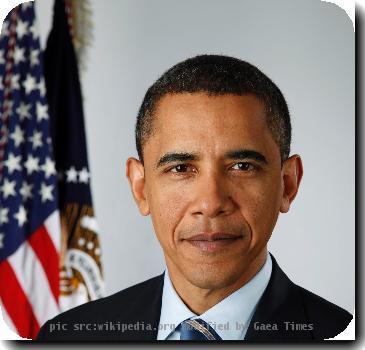Some vulnerable patients may be shut out of lower-cost health premiums available this year
By Ricardo Alonso-zaldivar, APFriday, April 16, 2010
Low-cost coverage in Obama health plan not for all
WASHINGTON — It’s an eagerly awaited early benefit of President Barack Obama’s health care overhaul: affordable coverage for Americans with medical problems who can’t get a private insurer to even take a look.
Starting in July, a special high-risk pool will offer coverage to uninsured people with pre-existing health conditions at a cost similar to what everyone else pays. It’s the first test of whether the administration can deliver on Obama’s vision within the budget Congress set.
But some vulnerable patients are probably going to feel a little cheated. Consider this coverage wrinkle:
Suppose your cancer is in remission. You had to quit your job while you were having chemotherapy, and your employer coverage ran out. You can’t find a private insurer who’ll take you, but you’re lucky to live in a state that has its own high-risk pool. Still, you have to struggle to pay the premiums, well above standard insurance because sicker people are in the group. Yet as the federal program is designed, you wouldn’t be able to switch over and take advantage of significant savings.
The reason: You have to be uninsured to qualify for the new plan.
“It’s awkward,” said John Rother, senior strategist for AARP, which supported the overhaul. “None of us would want to see the program lock people in to the more expensive existing coverage, but to switch over all those people would have definitely boosted the cost, and Congress was looking for ways to minimize it.”
That means some 200,000 patients now enrolled in more than 30 state high-risk insurance pools will be stuck paying higher premiums. Many are on tight budgets, drawing down their savings and borrowing from family members.
Premiums in the new federal pool are expected to be 10 percent to 50 percent lower than current state rates, said Richard Popper, who directs Maryland’s program. Co-payments and deductibles are also expected to be considerably lower. But the only way current beneficiaries could get the federal coverage would be to drop out of their state pool and go uninsured for six months.
“That would be a very risky thing to do,” said Stephen Finan, policy director for the American Cancer Society Cancer Action Network. “Can you afford to go without coverage for six months in the hopes of getting a better price? It’s a big gamble.”
Health and Human Services Secretary Kathleen Sebelius calls the federal risk pool a first step toward ending insurance discrimination against people with health problems. But HHS officials say Congress wrote the rules and there’s nothing they can do to open up the program to people now in state pools. The federal pool is designed for the uninsured.
The program will be temporary, a bridge to 2014, when denial of coverage for medical reasons will be against the law, and new insurance markets will offer taxpayer subsidized coverage for millions. Number crunchers at Medicare estimate that 375,000 people will sign up this year.
Sebelius says she expects the plan will operate alongside state risk pools where such programs exist — making premium comparisons inevitable. She’s also planning a national program to serve people in states that have no risk pools, or opt not to participate.
Georgia insurance commissioner John Oxendine announced this week that his state would not. Oxendine, a Republican running for governor, questioned the constitutionality of the federal overhaul law, and said he thinks joining the new risk pool could end up costing state taxpayers money.
On the other side of the debate, consumer groups supporting the health care law are worried that the federal risk pool may still be unaffordable for some. In a letter to Sebelius, 13 consumer, labor, and patient advocacy groups urged additional subsidies to help low-income people. But the $5 billion that Obama and Congress set aside may not be enough to support even a basic program for long.
A recent report by Medicare economists warns that the program could go through $4 billion in its first year, and run out of money as early as 2011. HHS spokesman Nick Papas sought to downplay concerns about the funding. “We are confident that the resources provided in reform will help provide coverage to Americans in need,” he said.
But many independent experts are skeptical.
“These are some of the sickest people in the country, and therefore their costs would be dramatically higher — yet the law requires that they be subsidized to standard rates,” said Robert Laszewski, a health care industry consultant. “I think they’ve given (Sebelius) an impossible task.”
Tags: Access To Health Care, Barack Obama, Government Programs, Government Regulations, Government-funded Health Insurance, Health Care Industry, Health Issues, Industry Regulation, North America, Personal Finance, Personal Spending, United States, Washington









